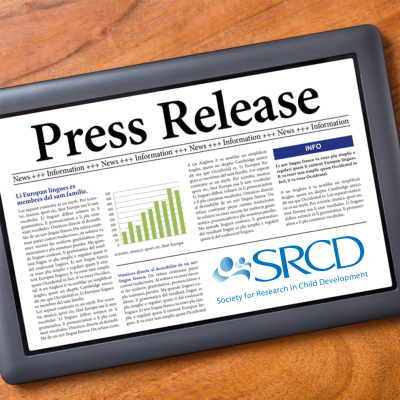Ethnic and Political Violence Increases Children's Aggressive Behavior
PRESS RELEASE / CHILD DEVELOPMENT: Embargoed for Release on August 21, 2012
Ethnic and political violence in the Middle East can increase violence in families, schools, and communities, which can in turn boost children’s aggressiveness, especially among 8-year-olds. Those are the findings of a new study that examined children and their parents in the Middle East.
“The study has important implications for understanding how political struggles can spill over into the everyday lives of families and children, and suggests that intervention might be necessary in a number of different social areas to protect children from the adverse impacts of exposure to ethnic-political violence,” according to Paul Boxer, associate professor of psychology at Rutgers University and adjunct research scientist at the University of Michigan, who led the study.
The study, published in the journal Child Development, was conducted by researchers at Rutgers University, the University of Michigan, Bowling Green State University, Hebrew University of Jerusalem, the Palestinian Center for Survey and Policy Research, and the New School for Social Research.
Researchers conducted three yearly waves of interviews with a large group of children and their parents living in the Middle East—600 Palestinian Arab families, 451 Israeli Jewish families, and 450 Israeli Arab families. In the first wave, a third of the children were 8, a third were 11, and a third were 14. At each interview, children and parents provided information about the children’s behavior and exposure to family, school, neighborhood, and ethnic-political violence. Ethnic-political violence was defined as loss of or injury to a friend or family member, experiencing security checks or threats, and witnessing actual violence (seeing someone held hostage, tortured or abused), among other examples.
The study found that Palestinian children were at the greatest risk for exposure to violence and showed the highest level of aggressive behavior. Boys were at greater risk than girls for all forms of exposure to violence and for aggression. And the oldest children tended to experience more violence than the younger ones, but they weren’t uniformly more aggressive. According to developmental theory and the overall pattern of findings, younger children appear to be more sensitive to the impact of violence than older children. This chain of events was consistent across all three ethnic groups studied—Palestinian, Israeli Jewish, and Israeli Arab.
The study was funded by the Eunice Kennedy Shriver National Institute of Child Health and Human Development.
###
Summarized from Child Development, Volume 84, Issue 1, Exposure to Violence Across the Social Ecosystem and the Development of Aggression: A Test of Ecological Theory in the IsraeliPalestinian Conflict by Boxer, P (Rutgers University and University of Michigan), Huesmann, LR (University of Michigan), Dubow, EF (Bowling Green State University and University of Michigan), Landau, SF, and Gvirsman, SD (Hebrew University of Jerusalem), Shikaki, K (Palestinian Center for Policy and Survey Research), and Ginges, J (New School for Social Research). Copyright 2012 The Society for Research in Child Development, Inc. All rights reserved.


